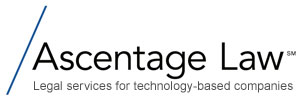In the US, there are several policies that software businesses are required to comply with. Here are some of the most common ones:
-
Data protection and privacy: Companies must comply with laws such as the General Data Protection Regulation (GDPR) and the California Consumer Privacy Act (CCPA) to protect the personal information of their customers and users.
-
Intellectual property: Companies must protect their own intellectual property, such as source code and software, as well as ensure that they are not violating the intellectual property rights of others. This may involve obtaining patents, trademarks, and copyrights.
-
Employment laws: Companies must comply with various employment laws, such as those related to minimum wage, overtime pay, anti-discrimination, and safety in the workplace.
-
Export controls: Companies must comply with US export control laws, which regulate the export of certain products and technologies, including software, to foreign countries.
-
Tax laws: Companies must comply with federal, state, and local tax laws, including laws related to income tax, sales tax, and payroll taxes.
-
Consumer protection laws: Companies must comply with consumer protection laws, such as those related to truth in advertising, product labeling, and warranties.
These are just a few of the policies that software businesses in the US may be required to comply with. It’s important to note that these requirements can vary by state and industry, and it’s always a good idea to consult with a lawyer to ensure compliance with all relevant laws and regulations.
To Get a Review of your Business Policies Complete the Form or Call +1(603) 227-0525, to Reach Aaron.
"*" indicates required fields
